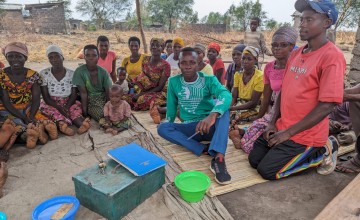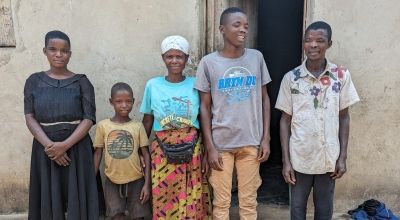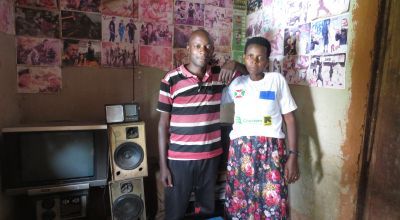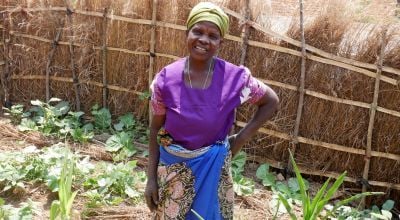
Read our 2023 annual report

Knowledge Hub
In a small village in Burundi, a community has gathered around a rusted cash box, and a neatly written ledger book of names and figures. Sitting in a circle, they pool their resources for the collective good.
Breaking the cycle of extreme poverty is difficult.
Too often, the talent and ambition of people is not rewarded with opportunity, such as a loan to start a business.
Too suddenly, a storm can wipe out all hard-earned progress.

Graduation Programming in Burundi
People living in conditions of extreme poverty struggle to access credit through formal lending institutions. To remedy this problem, Concern and Irish Aid are establishing community savings and loan groups in Burundi.
Burundi is ranked 185th out of 189 countries on the Human Development Index, a United Nations analysis of living standards around the world. Of a population of 13 million people, 73% live in poverty, living on the equivalent of less than $2.15 a day.1
Savings and loan groups are one element of a development approach called Graduation Programming, in which Concern aims to break the cycle of extreme poverty in Burundi.
Neighbours commit savings to a mutual fund and invest in each other’s small businesses through issuing small loans. As the groups grow, they are linked with formal microfinance institutions to help them avail of larger loans to expand their businesses.
The Rumotomoto Hill Savings Group
“We meet once a week to save money as a community”, says Havyarimana Faustin, the appointed Secretary of the Rumotomoto Hill savings group in Bubanza Province.
“After saving, we discuss if anyone wants to take a loan, and for what business purpose. Some community members have taken loans for small businesses, like selling tomatoes or potatoes within the community.
“I took a loan of 15,000 Burundian Francs” [the equivalent of about 4.80 Euro], continues Havyarimana. “I used it to buy chickens and later sold them, making a profit. This loan made a significant impact on my life.”
Concern guided the Rumotomoto Hill community through the process of establishing their own savings group, with a particular emphasis on good governance.
“We have a committee, comprising of a president, a secretary (myself), and others responsible for various tasks. The president advises and oversees the operations. Another committee member is in charge of operations, keeping track of savings and loans. They also maintain records of our finances.
“We begin our meetings at 3PM. If someone is absent, we mark their non-attendance. During a typical meeting, we verify the amount in the cashbox against our records. Each member's contribution is checked. We ensure that the cash in the box matches the amount written in our books.”
At every meeting, the group members pay 200 Burundian Francs into an emergency fund, designed to support any community member in crisis.
A lifeline in times of crisis
In Bubanza Province, up to 70% of people survive on crops grown in small, household gardens. Extreme weather, primarily in the form of violent winds and hail, has hit these farmers hard in recent years. Between 2018 and 2022, more than 330,000 Burundians were affected by natural disasters, with approximately 113,500 people left displaced from their homes.
Those with the least assets and resources struggle to stockpile for contingency purposes and are the most vulnerable to complete, sudden destitution.
Compounding the loss and damages suffered during extreme weather events, people living in conditions of extreme poverty are often forced to sell their remaining assets to ensure survival in the aftermath.
By pooling their resources, the villagers are more resilient to such shocks. When all is lost, a lifeline remains: solidarity, and a loan, from your neighbours.




